What Are Dental Crowns Used For? A Comprehensive Guide to Their Benefits and Applications
- Understanding Dental Crowns
- When Are Dental Crowns Needed?
- Types of Dental Crowns
- The Benefits of Dental Crowns
- The Dental Crown Procedure
- Cost of Dental Crowns
- Choosing the Right Dentist for Dental Crowns
Dental crowns are custom-made caps placed over a tooth to restore its shape, size, strength, and appearance. A dental crown encases the entire tooth, effectively covering it from top to bottom. Crowns are typically used when a tooth is severely damaged or decayed, and the remaining tooth structure cannot support a filling.
These crowns are designed to match the color and shape of your natural teeth, blending seamlessly into your smile. While crowns can be made from various materials such as porcelain, metal, or a combination of both, their main goal is to restore a tooth's function and protect it from further damage.
When Are Dental Crowns Needed?
Dental crowns are often used in several scenarios. Here are some of the most common reasons why a dentist may recommend a crown:
- Severely Decayed or Damaged Teeth: If a tooth has significant decay that cannot be repaired with a filling, a dental crown is an effective solution to restore its function and appearance.
- Large Fillings: When a filling is too large to be effective, a crown is placed over the tooth to provide support and prevent further breakdown.
- Cracked or Chipped Teeth: A crown can help restore the strength and integrity of a tooth that has been cracked or chipped, preventing further damage.
- Root Canal Treatment: After a root canal procedure, a crown is often placed over the treated tooth to protect it and restore its natural function.
- Cosmetic Purposes: Crowns can also be used for cosmetic reasons to improve the appearance of discolored, misshapen, or poorly sized teeth.
If you have a tooth that’s in need of significant restoration, a dental crown might be the best option to maintain both function and aesthetics.
Types of Dental Crowns
There are several types of dental crowns available, each with its own benefits and drawbacks. The right type of crown for you will depend on factors like the location of the tooth, your personal preferences, and your budget:
- Porcelain Crowns: Porcelain crowns are popular for their ability to blend seamlessly with natural teeth. They are ideal for front teeth and provide excellent aesthetics.
- Metal Crowns: Made from metals such as gold or silver, metal crowns are incredibly durable and are often used for back teeth where appearance is less important. They are a great option for patients who need strength and durability.
- Porcelain-Fused-to-Metal Crowns: These crowns combine the strength of metal with the aesthetic appeal of porcelain. They are often used for teeth that are visible but still need the durability of metal.
- Resin Crowns: Resin crowns are more affordable than porcelain or metal options but are less durable. They are often used for temporary crowns or in situations where cost is a major concern.
Your dentist will help you decide which type of crown is best for your specific needs based on factors like tooth location, wear and tear, and budget considerations.
The Benefits of Dental Crowns
Dental crowns offer a variety of benefits for patients. Here are some of the key advantages:
- Restores Tooth Function: Crowns help restore the strength and function of damaged or decayed teeth, allowing you to bite and chew normally again.
- Improves Appearance: Crowns can enhance the appearance of damaged or discolored teeth, providing a more attractive and natural-looking smile.
- Durability: Crowns are highly durable and can last for many years with proper care. They are resistant to wear and tear, making them a reliable option for long-term tooth restoration.
- Protection: Crowns protect teeth that are weak or vulnerable to further damage. For example, a crown placed over a root canal-treated tooth can prevent it from cracking or breaking.
Overall, dental crowns provide both functional and cosmetic benefits, making them a popular choice for many patients seeking long-term solutions for damaged teeth.
The Dental Crown Procedure
The dental crown procedure typically involves two visits to the dentist:
- First Visit: During the first visit, the dentist will examine and prepare the tooth. This may involve removing any decayed or damaged parts of the tooth and shaping it to ensure a secure fit for the crown. An impression of the tooth will be taken and sent to a dental lab to create the custom crown.
- Second Visit: Once the crown is ready, you’ll return for the second visit, where the dentist will place the crown over your tooth and make any necessary adjustments to ensure a comfortable and secure fit.
The entire process usually takes a few weeks, but modern technologies like same-day crowns can sometimes shorten this timeline.
Cost of Dental Crowns
The cost of dental crowns can vary widely depending on the type of crown, the dentist's location, and other factors. On average, dental crowns can cost between $800 and $2,500 per tooth. Porcelain crowns are typically more expensive than metal or resin crowns due to the materials used and the level of customization required.
It’s important to check with your dentist to get an accurate estimate of the cost for your specific case. Dental insurance may also cover part of the cost if the crown is needed for functional reasons, such as after a root canal or to protect a damaged tooth.
Choosing the Right Dentist for Dental Crowns
Choosing an experienced and skilled dentist is crucial for the success of your dental crown procedure. When selecting a dentist, consider the following:
- Specialization: Look for a dentist who specializes in restorative or cosmetic dentistry and has experience in placing crowns.
- Patient Reviews: Check reviews or ask for referrals to ensure the dentist has a good reputation for crown procedures.
- Consultation: Schedule a consultation to discuss your options and ensure you feel comfortable with the dentist's approach to your treatment.
By choosing the right dentist, you can ensure a smooth, effective procedure that restores your smile and improves your dental health.

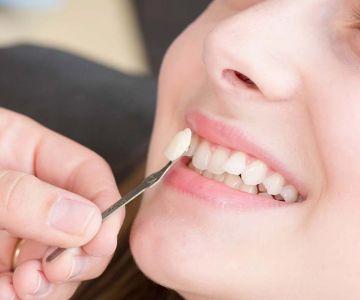
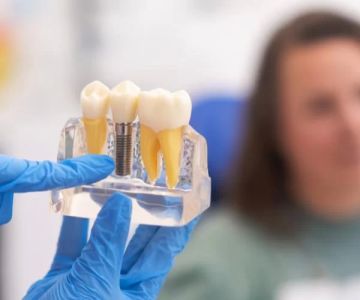
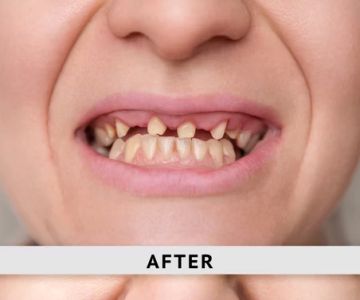

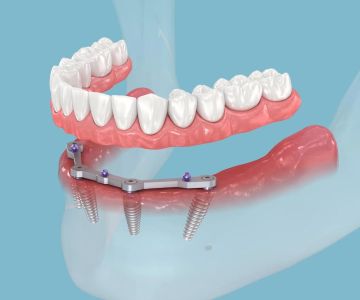
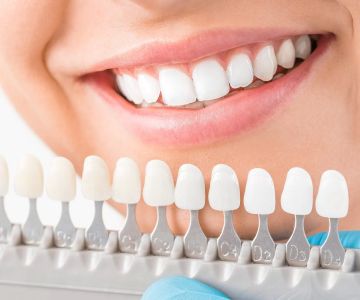
 Westgate Dental Arts
Westgate Dental Arts Coventry Family Dental
Coventry Family Dental Familia Dental
Familia Dental Dr. Daniel S. Fife, DDS
Dr. Daniel S. Fife, DDS Dentistry At Suburban Square: Michael I. Wollock, DMD
Dentistry At Suburban Square: Michael I. Wollock, DMD Comfort Care Dental
Comfort Care Dental The Importance of Oral Health Education During Pregnancy for a Healthy Pregnancy
The Importance of Oral Health Education During Pregnancy for a Healthy Pregnancy Why Skipping Dental Checkups Can Lead to Bigger Oral Health Problems
Why Skipping Dental Checkups Can Lead to Bigger Oral Health Problems Advantages of Porcelain Dental Restorations
Advantages of Porcelain Dental Restorations Best Tips for Brushing Your Teeth Properly for Healthy Gums: Essential Techniques for Oral Health
Best Tips for Brushing Your Teeth Properly for Healthy Gums: Essential Techniques for Oral Health How Can Diabetes Cause Tooth and Gum Problems? Preventing and Managing Oral Health Issues
How Can Diabetes Cause Tooth and Gum Problems? Preventing and Managing Oral Health Issues Healthy Habits for Promoting Good Oral Health and Hygiene: Tips for a Healthy Smile
Healthy Habits for Promoting Good Oral Health and Hygiene: Tips for a Healthy Smile